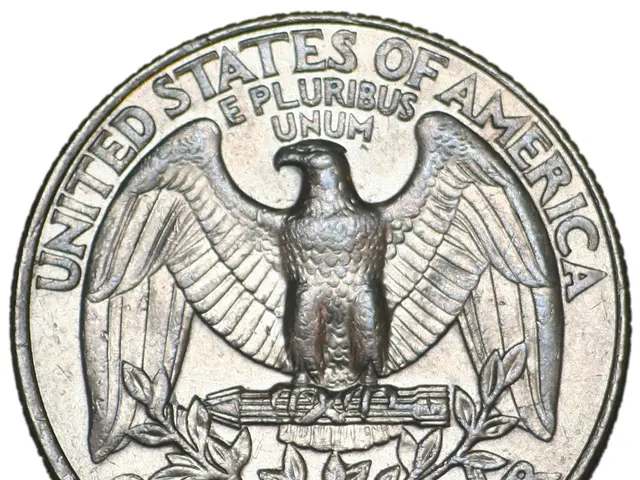Economic Domination: The Modern-Day Bondage
In a world where the rich grow richer and the poor struggle to make ends meet, one man finds himself in the midst of a financial and political labyrinth.
Drafted into a war with no clear understanding of the enemy, he returns home to find breadlines and food shortages. His savings disappear within 90 days if not spent, and his monthly income, provided in the form of central bank digital currency, is barely enough to cover his expenses. After deducting expenses, he has little to no discretionary income.
The government, wielding a tight rein on the economy, penalises him for actions deemed contrary to his well-being, with a decrease in his social credit score and a loss of a fraction of his discretionary income. His injuries and the loss of his old apartment leave him feeling lost and lonely.
The root cause of his situation is the abandonment of sound money by governments. The shift to paper currencies and central bank control can increase economic inequality as these monetary policies often benefit those with better access to credit and assets, while inflation erodes the real wealth of holders of cash and fixed incomes.
Central banks, functioning as market manipulators and money printers for overspending governments, prioritise protecting Wall Street over the working class. Governments can use various tactics to control unhappy citizens, such as censoring speech, throttling food supplies, fomenting wars, and imprisoning dissidents.
Climate change, disease, and war may be used to convince citizens to own less and sacrifice more. The poorest people lose most in this artificial arrangement, as their cash savings lose value over time. The wealthiest end up owning everything, while everyone else struggles with consumer debts and the prospect of insolvency.
The man lives alone in a tiny apartment due to government restrictions on marriage and family size. Public anger does not deter those with armies from maintaining control. The collapse of the current system may be imminent, as indicated by the familiarity of the story.
However, the increase in paper currency supply causes the price of consumer goods to rise. The collapse of the dollar does not matter if those in control of the financial system today can control tomorrow's central bank digital currencies. The man is offered assistance in ending his life peacefully by his digital doctor.
Yet, there is a glimmer of hope. Gold, a tangible asset, serves as a hedge against currency devaluation and preserves wealth during economic crises. It highlights its role in protecting against the downside of paper money systems. Fiat currencies and central banks have no functional place in free societies.
The story presented in the article seems both foreign and painfully familiar. It serves as a stark reminder of the consequences of monetary control and the need for a return to sound money. The future lies in the hands of those who demand transparency, accountability, and a fair economic system.
Read also:
- A Business Model Explained: Its Purpose and Benefits for Your Venture
- Deep-rooted reinforcement of Walkerhughes' acquisitions through strategic appointment of Alison Heitzman
- Unchecked Management of HP Dams Leads to Environmental Disaster: RTI Reveals
- Nordstrom taps prominent New York residents for their second advertising campaign in the city.




